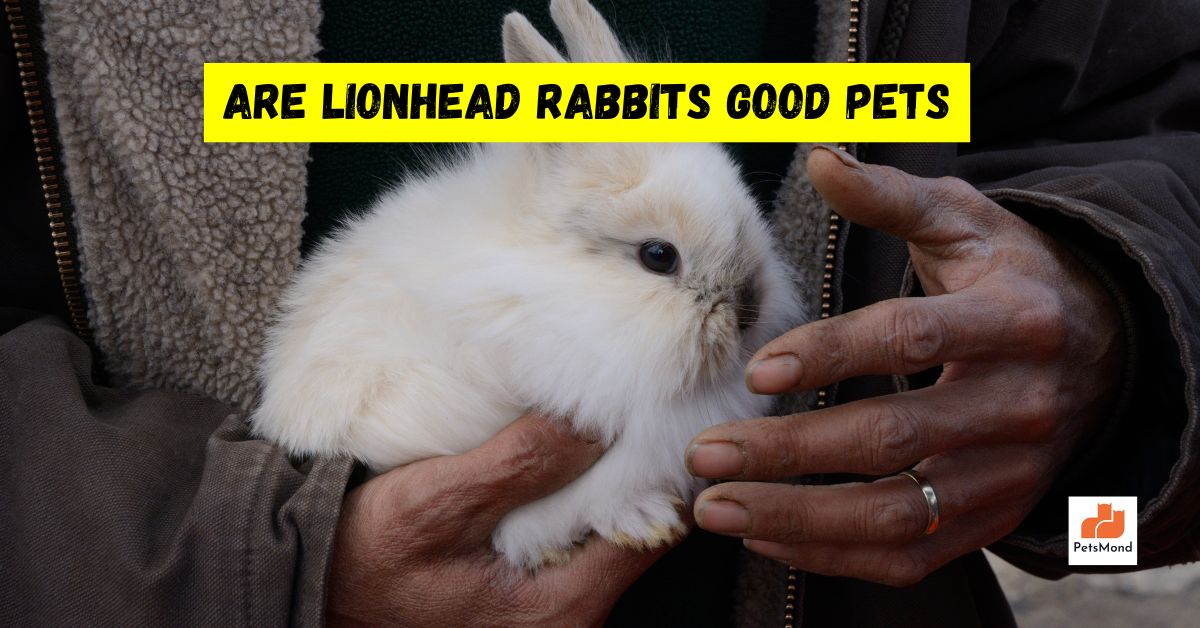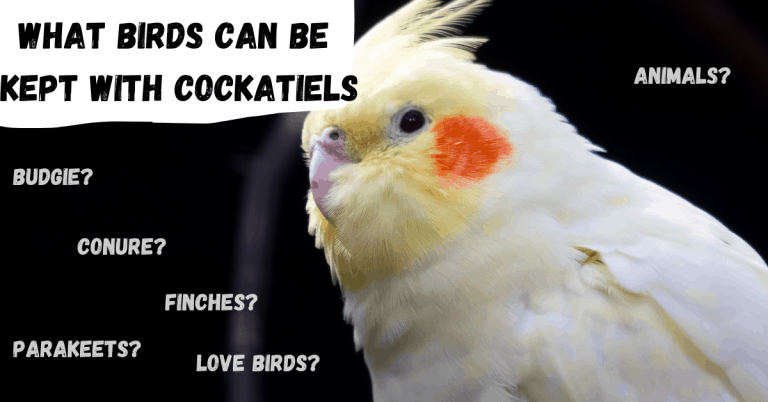Are Lionhead Rabbits Good Pets (My Honest Experience)
It was July 2011 when I was suddenly introduced to a rabbit pair by a friend. I wasn’t sure if those rabbits could make good pets. I had a lot of questions in mind. As years passed, my relationship with rabbits developed, and I also had lionhead rabbits. However, each time I had a new rabbit come home, I only wondered if the breed was right for me. So, are lionhead rabbits good pets?
Lionhead rabbits can make good pets for the right person or family (that can commit in terms of love, time, environment, and healthcare). These rabbits are small, typically weighing between 2.5 and 3.5 pounds, and have a docile, friendly personality. They’re intelligent and can be trained to do tricks, and they’re generally easy to handle and care for.
In this article, I’ll be talking further about lionhead rabbits as good and bad pets. In fact, I’ll be sharing my honest experience with them so you can take a call.
Here are the topics I’d cover:
- Lionhead Rabbits Breed Overview
- Pros Of Owing A Lionhead Rabbit As A Pet
- Cons Of Owning A Lionhead Rabbit As A Pet
- What You Need To Know Before Bringing Home A Lionhead Rabbit
- How To Find If A Lionhead Rabbit Is A Good Pet For Me
Lionhead Rabbits Breed Overview
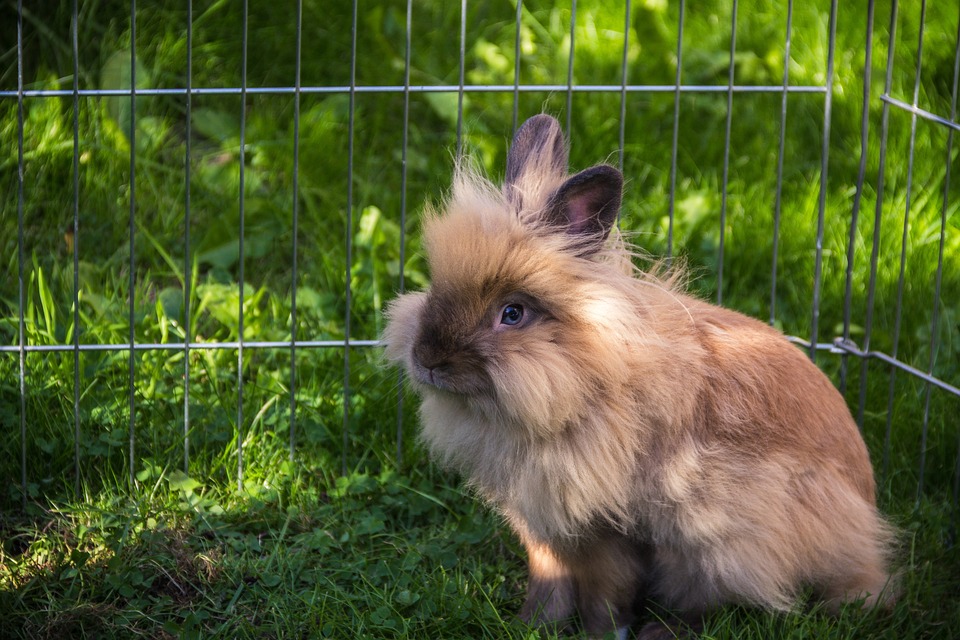
Before you decide on the commitment, you should know something about this breed. Making a well-informed decision is vital to ensure a long-lasting, regret-free relationship.
Size
Lionhead rabbits are small in size, making them the ideal pet for people who live in smaller homes or apartments and have limited space. They typically reach between 4-5 pounds when fully grown, which is much smaller than some other breeds like Flemish Giants or Rex Rabbits. As such, they don’t take up much room, but still, provide lots of love and companionship.
Intelligence
In addition to their small size, Lionhead rabbits are also quite intelligent animals that can be easily trained to do tricks and respond to basic commands. Not only will this help keep them entertained and stimulated mentally, but it can also provide lots of bonding opportunities with their owners.
It only takes a few minutes to observe each day for your rabbit to get used to a trick or develop the intelligence from what I’ve observed.
Personality
Lionhead rabbits have docile and friendly personalities that make them easy to handle and care for. Not only are they unlikely to bite or scratch if they become startled or scared, but they tend to form close bonds with their owners and become very affectionate pets. They enjoy snuggling up with their humans and will often follow you around your home just like a loyal canine friend would!
Lifespan
Another great thing about owning a Lionhead rabbit is that they can have an exceptionally long lifespan compared to most other types of small animals. With proper care and nutrition, it’s not uncommon for these furry friends to live up to 10 years or longer! That’s quite impressive for any type of pet!
Cost of Ownership
Since Lionheads are relatively low-maintenance animals, the cost of ownership isn’t too high either – especially when compared with cats or dogs that require more expensive equipment such as grooming supplies or kennels/crates. All you really need is some food/treats, hay, fresh water every day, toys/chews (to keep them entertained), and quality bedding in their cage or enclosure; none of which should break the bank!
Pros Of Owing A Lionhead Rabbit As A Pet
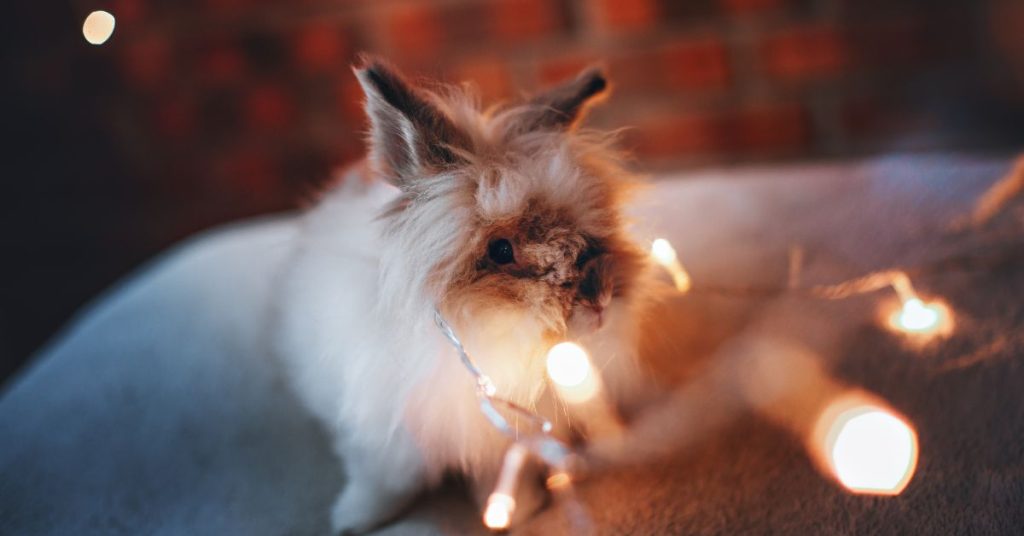
Owning a lionhead rabbit has a lot of pros, including moderate maintenance, affection, cleanliness, silence, low-cost, small size, and good with children.
Let’s take a detailed look.
- Low maintenance: Lionhead rabbits are generally low-maintenance pets and do not require as much attention and care as some other pets, such as dogs or cats.
- Affectionate: Lionhead rabbits are known for being affectionate and gentle pets. With proper socialization and training, they can develop strong bonds with their owners and be very affectionate and cuddly.
- Quiet: Lionhead rabbits are quiet pets and do not make loud noises, making them ideal for people who live in apartments or small spaces.
- Clean: Lionhead rabbits are clean animals and are easy to litter train, making them a good option for those who want a clean and hygienic pet.
- Low cost: Compared to other pets, such as dogs or cats, lionhead rabbits are relatively low-cost to maintain. This can make them a good option for those on a tight budget.
- Small size: Lionhead rabbits are small in size, making them easy to care for and handle. They can be easily housed in small spaces, such as apartments or small rooms.
- Good for children: Lionhead rabbits can make great pets for families with children. They are gentle, affectionate, and easy to handle, making them a good option for families looking for a low-maintenance pet.
Cons Of Owning A Lionhead Rabbit As A Pet
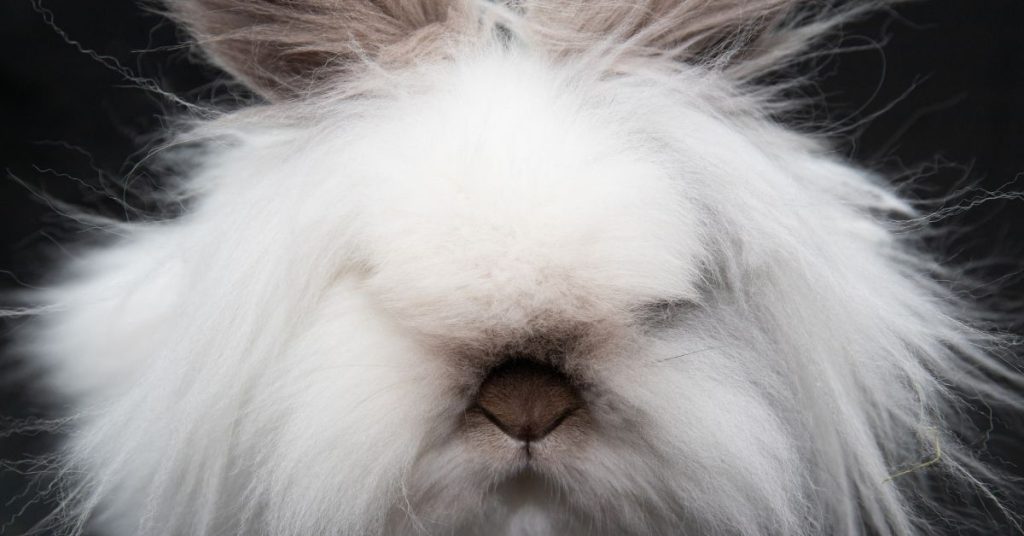
Owning a lionhead rabbit comes with a range of cons, including the requirement of ample space, special dietary needs, grooming, regular attention, high sensitivity, long-term commitment, destructive behavior, and health issues.
Let’s look at these cons in detail.
- Attention and care: Although lionhead rabbits are generally low maintenance, they still require daily attention and care, including daily exercise, grooming, and feeding.
- Space: Lionhead rabbits need plenty of space to move around, play, and exercise. If you live in a small apartment or do not have a secure outdoor space for your rabbit, this may not be the best pet for you.
- Cost: While lionhead rabbits are relatively low-cost to maintain, there are still costs associated with feeding, litter, and medical care. Make sure you’re prepared to cover these costs.
- Longevity: Lionhead rabbits have a lifespan of 8-12 years, which means you’ll need to be prepared for a long-term commitment.
- Sensitivity: Lionhead rabbits can be sensitive animals and may become easily stressed or frightened by loud noises, sudden movements, or unfamiliar people or pets.
- Health issues: Like all animals, lionhead rabbits are susceptible to a variety of health problems, including dental issues, ear infections, and digestive problems. Regular veterinary check-ups are important to keep your rabbit healthy.
- Destructive behavior: Lionhead rabbits have a tendency to chew on things, and they may cause damage to furniture, clothing, and other items if they’re not provided with plenty of appropriate chew toys.
- Special dietary needs: Lionhead rabbits have specific dietary needs, including a balanced diet of hay, vegetables, and pellets. Feeding your rabbit a diet that is not balanced can result in health problems.
Regular grooming is of utmost importance. Can you commit to it? I asked myself when I adopted one.
What You Need To Know Before Bringing Home A Lionhead Rabbit
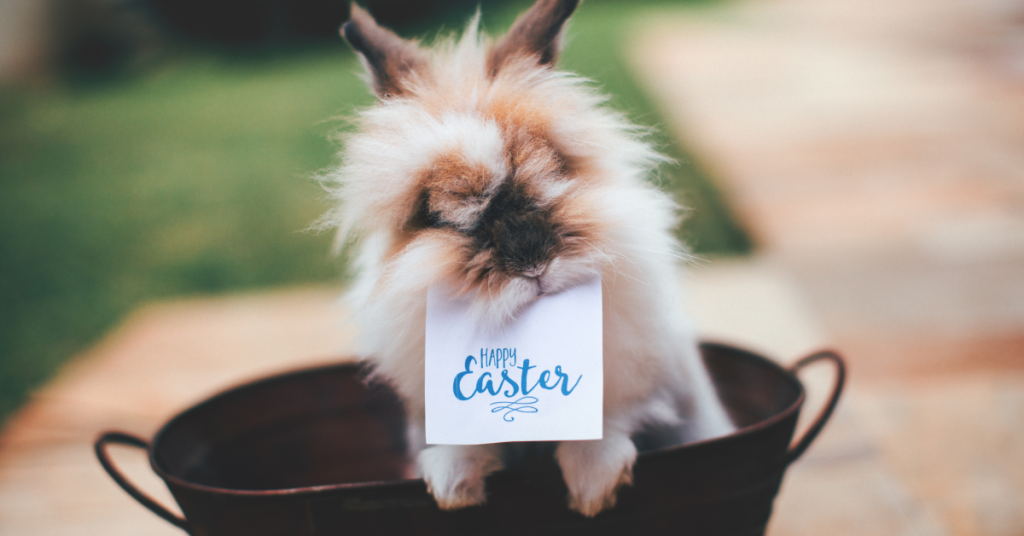
Before bringing home a lionhead rabbit, know that they need at least 8 sqft of space (permanent) and ample space to move around. Take care of their dietary needs and ensure you can afford to monthly expenses. Most importantly, remember that lionhead rabbits are human-dependent and would expect the presence of humans. Your time matters the most!
First and foremost, these rabbits can live up to 10 years with proper care and diet, so be prepared for the commitment. They require daily grooming of their dense fur to avoid matting and knots. As herbivores, they need a variety of fresh vegetables along with hay or pellets for nutrition. Additionally, attention should be given to their nails as they grow quickly and need regular trimming (only with the vet’s guidance).
If socialized correctly from an early age, lionhead rabbits can form strong bonds with their owners — becoming very friendly and affectionate creatures. They are also known as escape artists, so secure fencing will be required in any outdoor area where your little pal is allowed to roam freely!
They’re considered prey, and other creatures can easily attack them. Ensure that you’ve partitions for them if you’ve multiple animals at home. This is my personal experience!
petsmond
How To Find If A Lionhead Rabbit Is A Good Pet For Me
Lionhead rabbits make popular pets, but before bringing one home, it’s important to consider whether or not they are the right pet for you. This can be determined by taking into account factors such as lifestyle, space, and commitment required.
A lionhead rabbit can be a good pet for you if you can spend unlimited time each day with him and commit yourself to raising the rabbit for up to 10 years with proper care and nutrition. If you can also offer adequate space and keep yourself informed of their needs, this breed is perfect!
Time
One of the most important considerations is time. These animals require attention, playtime, and daily grooming of their fluffy fur. If you have a busy lifestyle or limited access to your pet throughout the day, then it may not be the best option.
Space
Another factor to weigh in is space. Lionhead rabbits need an appropriate area to exercise and explore – both indoors and outdoors – which could mean rearranging furniture or purchasing ramps and tunnels if you have limited space at home.
Commitment
Lionheads can live up to 10 years with proper care and nutrition. Can you commit that much time and effort to provide for your rabbit? Knowing this ahead of time will help you determine if this type of pet will suit your life in the long run.
FAQ
Are Lionhead Rabbits Good Indoor Pets
Lionhead rabbits are gentle, social, and affectionate and can make good indoor pets. In small sizes, they’re excellent companions to humans but need ample space indoors to run around. They may need access to outdoor spaces (under your supervision) at times.
Of course, you can also train them to be completely indoors, but getting them exposed to the natural environment can enhance their health.
Related Articles

